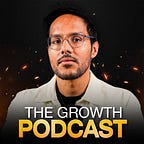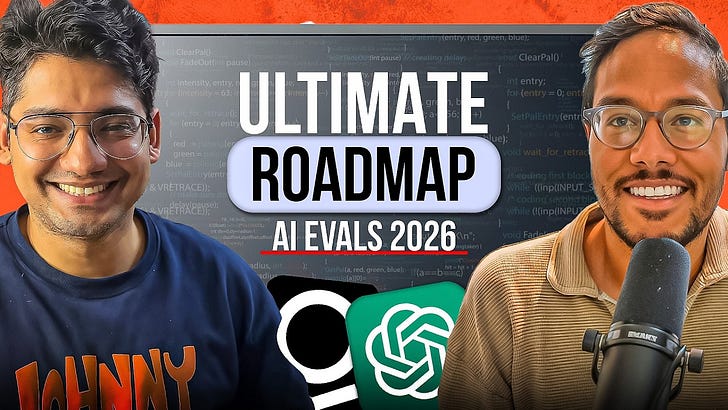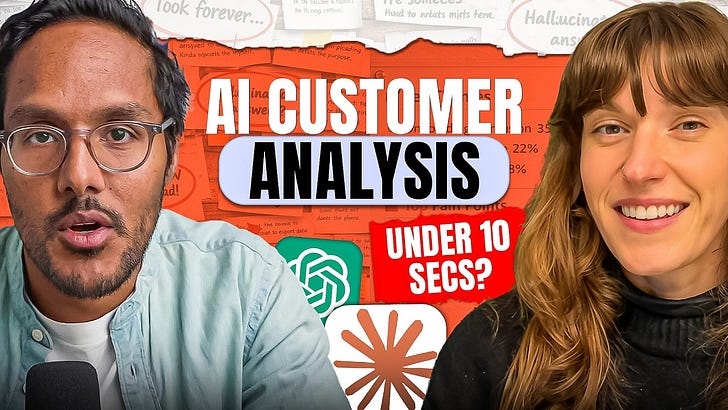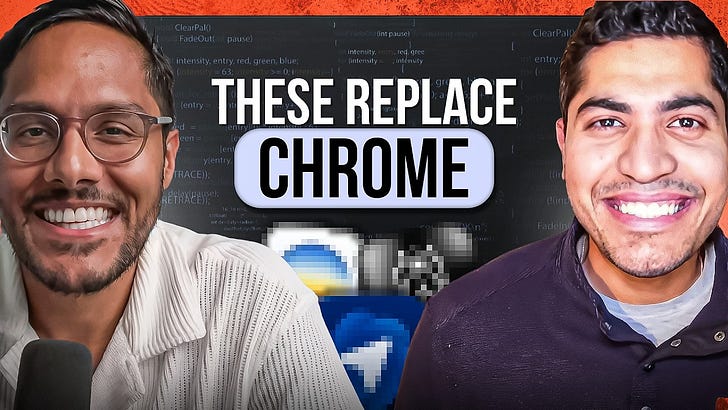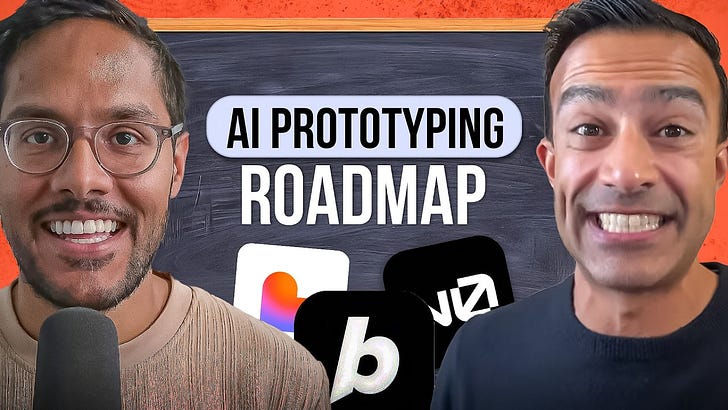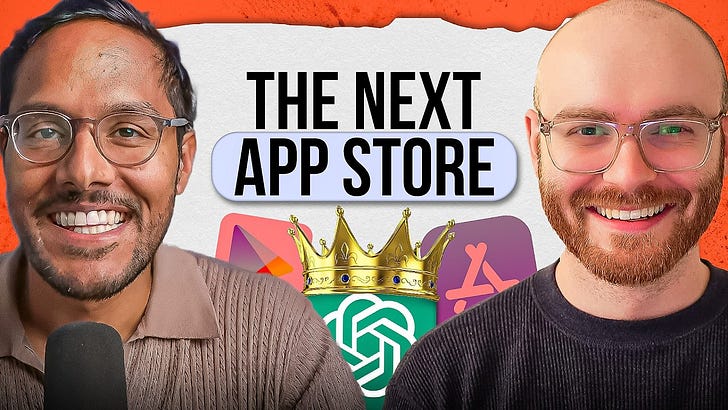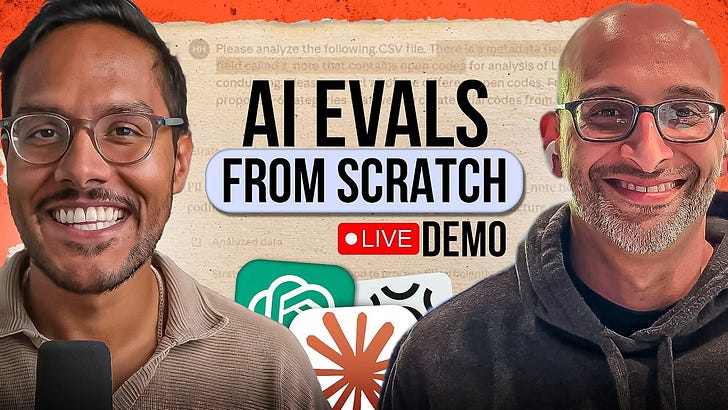Listen now on Apple, Spotify, and YouTube.
Brought to you by:
June.so: Customer analytics for product focused teams
Sprig: Build products for people not data points
OneSchema: Automate CSV imports directly in your product
"If I’d had access to data-driven insights, customer activation secrets, and proven go-to-market tactics that billion-dollar companies use, I’d have scaled my company so fast..."
Well, Christmas came early this year as Henry Schuck—generously—unpacks the exact strategies that have driven ZoomInfo’s exponential growth from a bootstrapped startup to a publicly traded powerhouse!
Henry shares a rare look into the disciplined decisions behind ZoomInfo’s rise, the role of AI in reshaping sales intelligence, and his approach to leading a resilient, future-proof organization.
This conversation is packed with tactical insights for anyone aiming to elevate their growth strategy and make a real impact.
In today's episode, we cover:
Founding Story: Funding with Credit Cards – 00:01:15
Finding Product-Market Fit Through Focused Targeting – 00:09:08
Rebranding from DiscoverOrg to ZoomInfo – 00:26:30
Current Business Model: Products, Segments, and GTM Strategies – 00:46:59
Developing ZoomInfo Copilot: Leveraging AI for GTM – 01:02:37
Here are the Key Takeaways
These 5 key takeaways will give you the edge you’re looking for in product building, growth, and scaling:
1. Start Small But Aim Big Enough
Many of us find excuses for not doing what we should be doing.
Sometimes, we blame a lack of resources.
Other times, it’s a lack of time — or something else entirely.
But Henry and his co-founder didn’t start with a huge investment; they each maxed out their credit cards to raise $25K, just enough to kickstart their vision. With a modest budget, they manually built data assets and landed their first customer within six months—a public IT staffing company with a $14,500 deal.
This story tells you two things:
You don’t need millions or an endless supply of resources to start
You just need a niche, dedication, a willingness to learn as you go, and the resolve to never give up.
2. Iterate Your Way to Product-Market Fit
Most founders waste months trying to perfect product-market fit (PMF), but ZoomInfo’s early days were far from perfect—they were about constantly tweaking and adapting based on customer needs.
For instance, when they initially lacked Fortune 1000 company data, they offered to build custom profiles for clients who wanted those accounts. Not only did this keep customers happy, but it also funded the expansion of their core product.
This "learn-as-you-go" approach helped them refine their product to the point where it could scale massively.
3. The Transformative Power of Data and Automation
From the start, data was ZoomInfo’s lifeblood. Henry describes how they initially spent hours on the phone with company operators, gathering data on key decision-makers.
Fast forward to today, and they’re using AI to automate lead ranking and customer insights through their Copilot feature. Copilot can prioritize leads based on signals, like recent job changes or tech stack updates, so sales teams can focus on high-value prospects.
It’s the evolution from “doing things that don’t scale” to mastering automation and scalability.
4. Embrace Go-to-Market Precision Over Broad Targeting
The biggest mistake many incredible founders with great products make? Targeting everyone.
Here’s the truth: not every segment is going to be your customer—at least not in the early years.
ZoomInfo started by focusing exclusively on mid-market IT companies. By deeply understanding this niche, they cut through the noise and established themselves as the go-to solution. This disciplined targeting, now supported by an advanced ABM strategy, allowed them to grow without diluting their value or spreading resources too thin.
Build something specific for a specific segment.
Dominate it and then expand into other segments with more features (Statsig is also a great example).
5. Prioritize Customer Activation as a Core Success Metric
At ZoomInfo, customer success isn’t just about having a support team; it’s about ensuring users find value from day one.
Because if you don’t help users build a habit with your product on day one, that day might never come.
Henry explains how they track key actions customers take within the first two weeks and intervene if engagement is low. This strategy helps ensure that customers are actively using and seeing value in the platform, reducing churn and creating upsell opportunities.
For more details, listen to the full episode now!
Referenced
Books
"The Innovator's Dilemma" by Clayton Christensen – A foundational text on understanding disruptive innovation in technology, referenced as an essential read.
Walter Isaacson's Biographies (specifically on Steve Jobs) – Recommended for product and growth leaders to understand the impact of visionary thinking and craftsmanship.
Frameworks
Champion Movers – A method where ZoomInfo tracks former users (champions) as they switch companies, ensuring continuity and leveraging relationships.
Product-Market Fit Iteration – ZoomInfo's approach to evolving its product continually based on customer feedback, adapting features, and securing relevance in the market.
Tiered Lead Routing System – ZoomInfo’s system that ranks and routes the best leads to top-performing sales reps, adjusted monthly based on performance, to optimize sales outcomes
Go-to-Market & Expansion Strategies:
Account-Based Marketing (ABM) – Extensively used by ZoomInfo to precisely target enterprise accounts with tailored ads and coordinated sales plays.
Free-to-Paid Conversion Strategy – Employed mainly for smaller businesses, allowing users to transition smoothly from a free trial to paid accounts.
Self-Service and Freemium Model for SMB – A strategy focused on driving digital self-service, enabling users to upgrade to paid plans with minimal resource allocation.
Where to find Henry
If you prefer to only get newsletter emails, unsubscribe from podcast emails here.
India Tour! 🇮🇳
I'm visiting India from 16th November to 23rd November, covering all the major Tech cities. It's going to be unlike any trip I've done before.
Delhi: 11/16-11/19
Bangalore: 11/19-11/22
Mumbai: 11/23
With events almost everyday.
Looking forward to see you all!
Up Next
We have some great podcasts coming from, Vineeth Madhusudanan, Aaron Dinin, and Pawel Huryn. I’m so excited to share them with all of you.
In the newsletter, check out this week’s latest piece if you haven’t yet: Session Replays: Advanced Techniques for PMs and Product Leaders
And look out for these pieces up next:
How Sprig Grows
The Product Strategy Interview Revisited
Storytelling for PMs
I think you’re going to love what’s coming up,
Aakash

